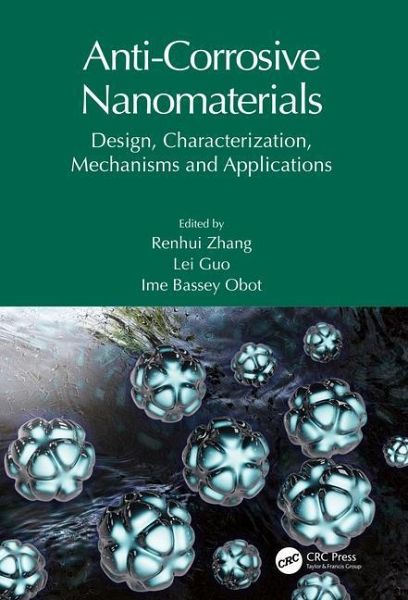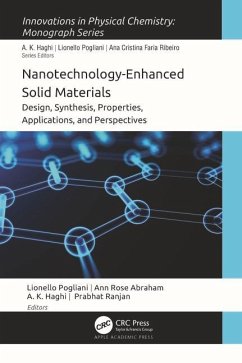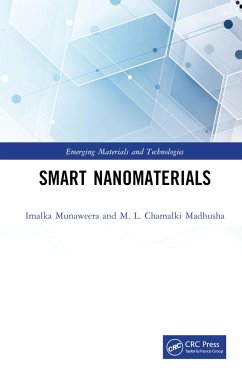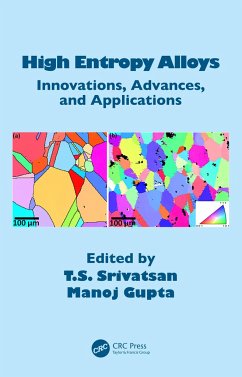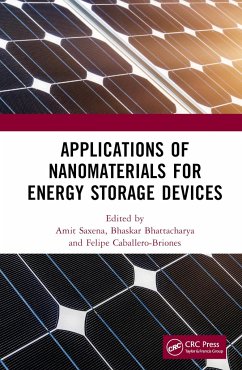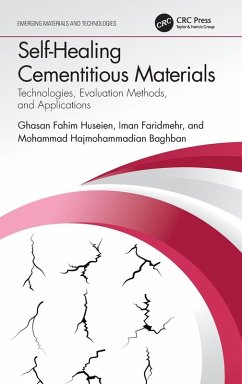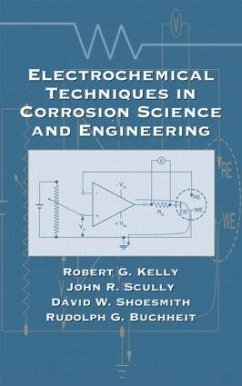Gebundenes Buch
Anti-Corrosive Nanomaterials
Design, Characterization, Mechanisms and Applications
Herausgeber: Obot, Ime Bassey; Zhang, Renhui; Guo, Lei
Versandkostenfrei!
Versandfertig in 2-4 Wochen
Weitere Ausgaben:

PAYBACK Punkte
97 °P sammeln!




Providing a comprehensive overview of the history and development of nanomaterials, this book discusses various practices for protection against corrosion.
Renhui Zhang School of Materials Science and Engineering, East China JiaoTong University, Nanchang 330013, China Dr. Renhui Zhang works at the School of Materials Science and Engineering in East China JiaoTong University, China. He obtained his PhD in physical chemistry at the University of Chinese Academy of Sciences (UCAS), China. He is a member of American Chemical Society (ACS) and serves as reviewer and editorial board member for various internationally recognized platforms like ACS, RSC, Elsevier, Wiley, and Springer. Dr. Zhang is an Editor of Current Chinese Science. He is the author of several research and review articles published at ACS, Elsevier, RSC, Wiley and Springer etc. platforms. Currently, Dr. Zhang has participated in two books for Springer and Wiley. Dr. Zhang received several awards for his academic achievements. Lei Guo School of Material and Chemical Engineering, Tongren University, Tongren 554300, China Dr. Lei Guo received his PhD in Chemical Engineering and Technology from Chongqing University, China in 2015. He is currently working as a Professor at the Department of Materials and Chemical Engineering, Tongren University, China. He has conducted a series of studies in various areas of the field of physical chemistry: electrochemistry, corrosion science, density functional theory, and molecular dynamic simulation. He has authored over 150 papers published in international journals (with h-index 35 and more than 4300 citations), 10 books, and 50 patents. He is also a member of the editorial boards of 10 international journals. He has recently focused on nanomaterials, organic corrosion inhibitors polymers, composites, and molecular simulation calculations. Dr. Guo received several awards for his academic achievements. Ime Bassey Obot Interdisciplinary Research Center for Advanced Materials, King Fahd University of Petroleum and Minerals (KFUPM), Dhahran 31261, Saudi Arabia Dr. Ime Bassey Obot is a professor and researcher at King Fahd University of Petroleum and Minerals (KFUPM), Saudi Arabia. He is the group leader of the Corrosion and Scale Inhibition Program at the Interdisciplinary Research Center for Advanced Materials at KFUPM. He obtained his PhD at the University of Ibadan, Nigeria. His research interests include corrosion control in oil and gas, the desalination industry, and the chemical and petrochemical industries. He has authored/co-authored over 250 research articles in international peer reviewed journals including several book chapters and critical reviews in the area of Corrosion Science and Engineering. He is also a recipient of six US patents in the area of Corrosion Science and Engineering by the US patent Office. He is on the editorial board of six international journals and a reviewer for 100 high-impact ISI international journals. He has been a principal investigator for several industrial projects running into several millions of dollars. He was awarded a certificate of recognition by the American Chemical Society for outstanding contribution to Chemical Research Review in 2012. He is also a member of the National Association of Corrosion Engineers (NACE) and American Chemical Society (ACS).
Produktdetails
- Verlag: Taylor & Francis Ltd
- Seitenzahl: 336
- Erscheinungstermin: 20. September 2023
- Englisch
- Abmessung: 184mm x 261mm x 23mm
- Gewicht: 872g
- ISBN-13: 9781032362601
- ISBN-10: 103236260X
- Artikelnr.: 68100186
Herstellerkennzeichnung
Libri GmbH
Europaallee 1
36244 Bad Hersfeld
gpsr@libri.de
Für dieses Produkt wurde noch keine Bewertung abgegeben. Wir würden uns sehr freuen, wenn du die erste Bewertung schreibst!
Eine Bewertung schreiben
Eine Bewertung schreiben
Andere Kunden interessierten sich für



